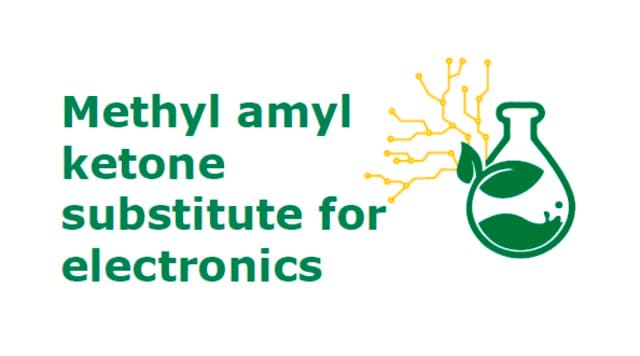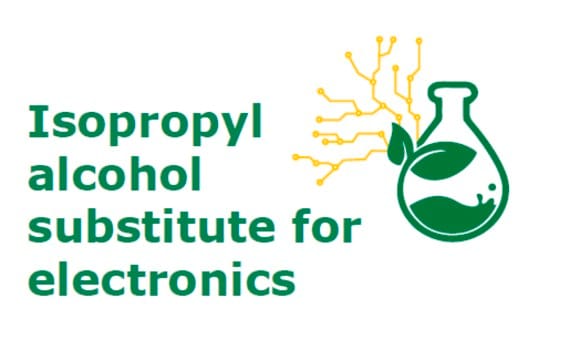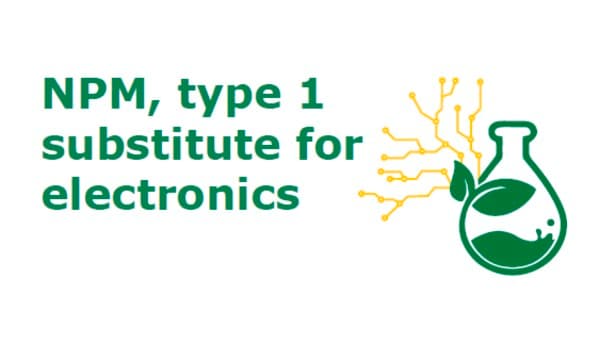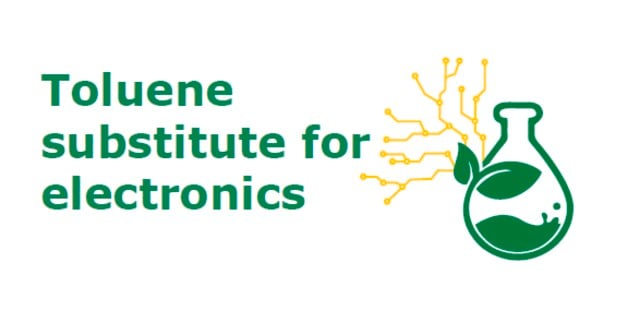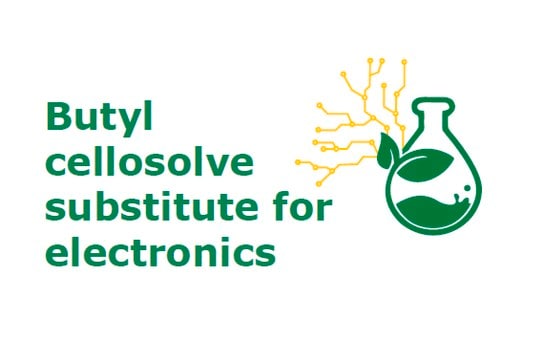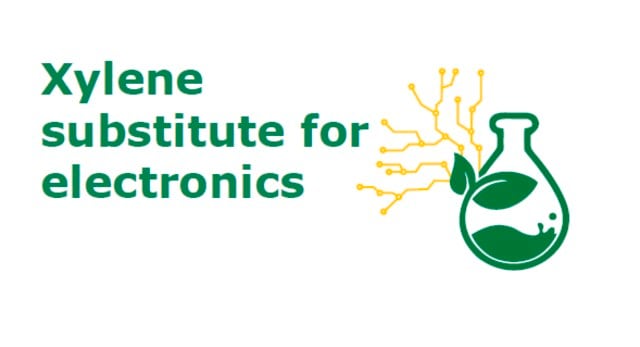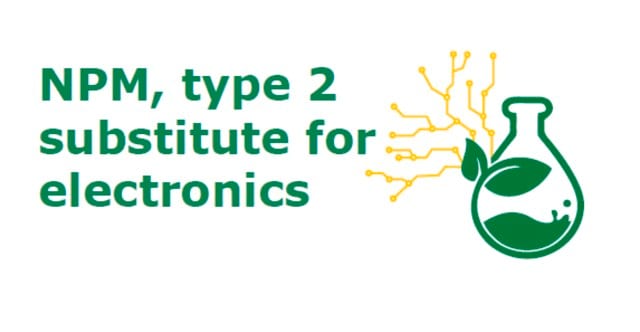929670
ElectroGreen®
Acetone substitute for electronics, bio-sourced
About This Item
Recommended Products
grade
for electronic purposes
Quality Level
description
Relative Evaporation rate: 2.84
Hansen Solubility Parameters: SPd = 7.7; SPp = 3.4; SPh = 6.1.
Assay
≥99% (GC)
form
liquid
greener alternative product characteristics
Design for Energy Efficiency
Use of Renewable Feedstocks
Learn more about the Principles of Green Chemistry.
impurities
≤0.09 wt. % Acidity (as lactic acid)
≤0.2% Water (Karl Fischer)
≤1 ppm As, Cr, Cd, Cu, Hg, Mn, Ni, Pb, Zn, trace (each)
evapn. residue
≤0.05%
color
clear
viscosity
7.8 cP(20 °C)
density
0.8620 at 25 °C (specific gravity)
greener alternative category
Looking for similar products? Visit Product Comparison Guide
Related Categories
General description
This solvent blend consists of ethyl acetate 50-70%, ethanol 30-50%, Ethyl lactate 10-20%.
Application
Storage and Stability
Legal Information
Signal Word
Danger
Hazard Statements
Precautionary Statements
Hazard Classifications
Eye Dam. 1 - Flam. Liq. 2 - STOT SE 3
Target Organs
Central nervous system
Supplementary Hazards
Storage Class Code
3 - Flammable liquids
WGK
WGK 1
Flash Point(F)
39.2 °F
Flash Point(C)
4 °C
Choose from one of the most recent versions:
Certificates of Analysis (COA)
Don't see the Right Version?
If you require a particular version, you can look up a specific certificate by the Lot or Batch number.
Already Own This Product?
Find documentation for the products that you have recently purchased in the Document Library.
Articles
Carbon-based Sustainable Organic Electronics (SOE) limit the use of critical elements and biodegrade at their end-of-life. This review offers insight on how structural and energy disorder in these materials influence device performance and includes evaluations of various transport models and their limitations.
Carbon-based Sustainable Organic Electronics (SOE) limit the use of critical elements and biodegrade at their end-of-life. This review offers insight on how structural and energy disorder in these materials influence device performance and includes evaluations of various transport models and their limitations.
Carbon-based Sustainable Organic Electronics (SOE) limit the use of critical elements and biodegrade at their end-of-life. This review offers insight on how structural and energy disorder in these materials influence device performance and includes evaluations of various transport models and their limitations.
Carbon-based Sustainable Organic Electronics (SOE) limit the use of critical elements and biodegrade at their end-of-life. This review offers insight on how structural and energy disorder in these materials influence device performance and includes evaluations of various transport models and their limitations.
Our team of scientists has experience in all areas of research including Life Science, Material Science, Chemical Synthesis, Chromatography, Analytical and many others.
Contact Technical Service